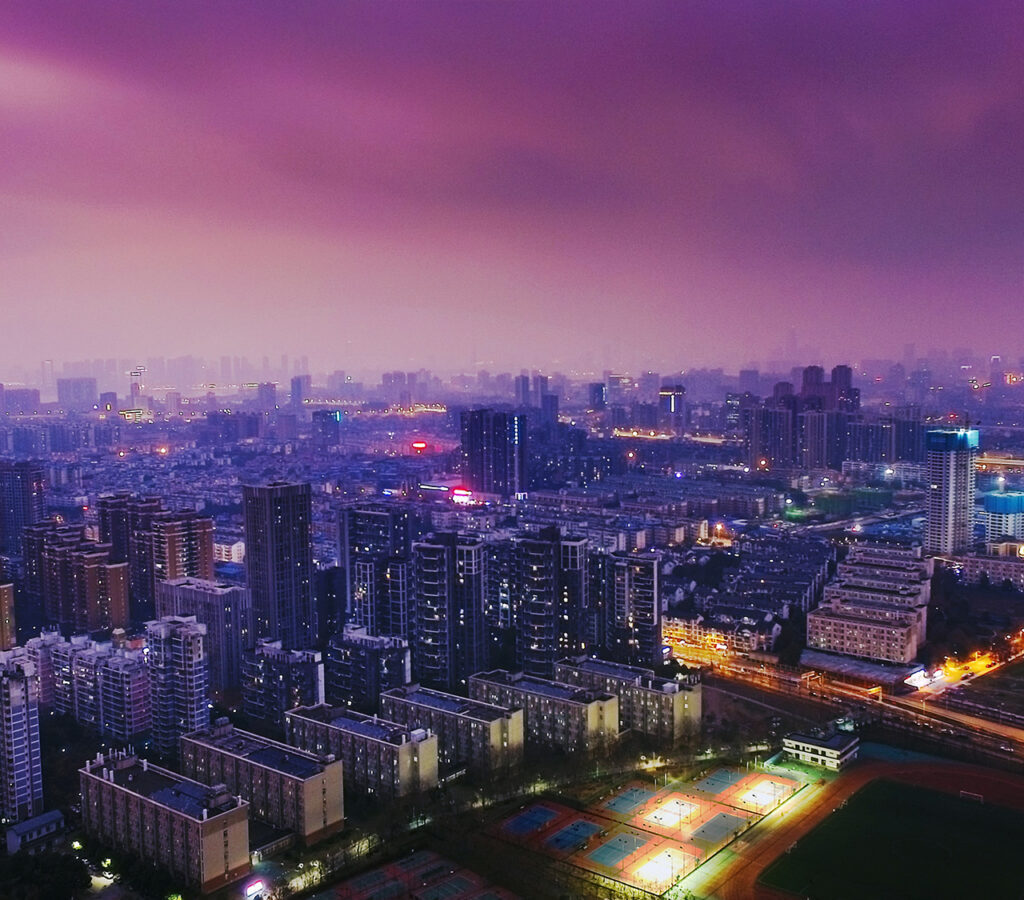As even China is easing its most strict Corona regulations, it might be time to look back at the worldwide pandemic that struck humanity: Covid. Starting as an unknown virus from the city of Wuhan it caused all sorts of reactions: fear, suppression, anxiety, anger, control and lots of grief. An estimated 6 million people died of Covid. Governments and leaders reacted in response to the virus in many sorts of ways: Some simply denied it at first, others tightened their grip of control and power. In China we can see the worst case scenario of a totalitarian system, that is controlling its population with every step, every phonecall, every movement. Face-recognition, constant Covid checks through an app, testlocations everywhere, forced isolations and lockdowns, and white medical staff completely enveloped in white suits with goggles. (read a first hand report on AL JAZEERA)
Other countries have been more mild in their response, but also here many civil liberties and privacy rights were abandoned and brushed aside. Suddenly most countries were not ruled anymore by their democratic institutes, but by virologists, medical advisers, science and modern technology. Pharmaceutical companies, that suddenly had become our saviors, made billions of money, without any critical control or needed scientific debate. Different opinions or even discussions were not allowed anymore. Even the media joined the chorus. The director of one of the biggest newspapers in the Netherlands – The Volkskrant – said that they would follow the narrative of the government. And very understandable: we were severely threatened as humanity. Everyone was deeply afraid, if we admitted it or not. A subconscious fear of survival and extinction rushed as a wave through the world. Would we survive or not?
As a reaction to the Covid regulations and government control some people reacted in anger and rebellion. Just as some leaders, some people denied the existence of Covid, others thought it was a trap by a world government to kill us all, and many more wild speculations roamed the internet. Since nobody knew exáctly what was going on, many started assuming and creating theories of their own. The world got more and more divided. Even within families and partnerships people ended up on opposing sides of the spectrum. You were pro- or anti-vaccinations, pro or anti- science, pro or anti lockdowns. It was difficult to keep a sane mind, stay in the middle and basically listen to each other. Apart from a virus that seemed to ruin our immune system, we were destroying our own way of life by letting go the most basic human values: Listening to each other and accepting each others viewpoint. Some scientists or doctors were banned or fired for even asking questions or having a different opinion.
Now the pandemic is – almost – over we tend to react as most people do after a trauma: let’s move on with our lives and forget about it. We go back to normal and business as usual. We forget to look back and ask questions. What happened? How and why did we react in a certain way? How can we prevent this from happening again? What can we learn form this? This is not only a question for scientists or experts, but for all of us. We were all in the same boat, worldwide, and laypeople and experts have just as much right of speech, because there are so many sides to a pandemic: social, scientific, political, economical, spiritual.
For myself: I got Covid – or Corona, as we called it at that time – right at the very beginning of the pandemic. I got severely ill for 2,5 months and as I realized later, almost died. As I was lying in bed on my own in my apartment during that time I kept a diary about my experience, but also about my research into the illness. Since my doctor couldn’t help me or tell me what was happening, I decided to do some research myself: what in gods name was inside my body that was ruining my lungs dramatically and causing all this distress, in me and in so many people around the world? And where did it come from? I learned about ‘gain of function’ research: the work in laboratories around the world to make viruses more deadly and contagious, in order ‘to prevent’ a pandemic.
I read all about it, and understood that this was happening in Wuhan, but that it got suppressed by the Chinese government. I also discovered that almost all western pharmaceutical companies were involved in the research in Wuhan: there was a specific industrial area – Biolake Wuhan – where Pfizer, Bayer, Sanofi Pasteur and many others have their offices and factories. They were all closely related and involved in the problems that led to the pandemic. I published my reflections – Diary of a Corona Patiënt – and left it at that. I didn’t want to add more confusion to what became like a war of opinions. Also because there wasn’t much evidence on either side and a lot of unhinged theories started spreading around. I kept following it from the sidelines though.
Now the pandemic has seemed to have stopped, I feel we definitely need to look back and evaluate. Time to look back at Covid. I came across three interviews with extremely bright thinkers and doctors that are looking back and evaluating. I like to share them here.
- Interview by Jordan Peterson with Matt Ridley about the origins of Covid: JORDAN PETERSON
- Interview by Carl Tucker with Dr. Aseem Malhotra on the influence of the pharmaceutical industry: CARL TUCKER
- Interview with Dr. Mathias de Smet in the documentary ‘Headwind’ about his research on Totalitarianism: HEADWIND
DIARY OF A COVID PATIENT
My own story you can read on: BLOG TON
